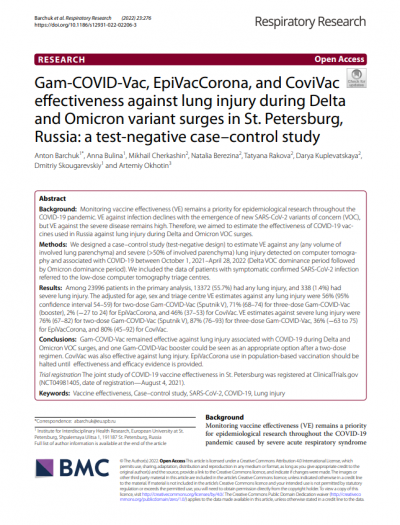Gam-COVID-Vac, EpiVacCorona, and CoviVac effectiveness against lung injury during Delta and Omicron variant surges in St. Petersburg, Russia: a test-negative case–control study
Monitoring vaccine effectiveness (VE) remains a priority for epidemiological research throughout the COVID-19 pandemic. VE against infection declines with the emergence of new SARS-CoV-2 variants of concern (VOC), but VE against the severe disease remains high. Therefore, we aimed to estimate the effectiveness of COVID-19 vaccines used in Russia against lung injury during Delta and Omicron VOC surges.




